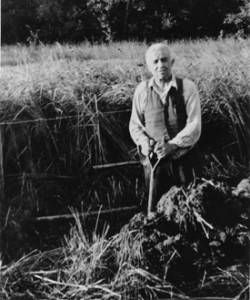For over 22 years, the garden at Casa Juan Diego has flourished. In raised beds and borrowed earth, we’ve grown thousands of pounds of fresh vegetables—food that has gone directly to our house of hospitality, nourishing the poor, the migrant, the sick, the stranger.
That garden, tended with love and sweat, has been a quiet but steady act of justice. And now, we invite you to join us.
Until recently, Casa Juan Diego distributed fresh produce to over 1,000 families each month, thanks in large part to the Houston Food Bank’s access to government-supported programs. But in the past year, funding for those programs has been cut. The USDA has eliminated key initiatives like the Local Food Purchase Assistance Cooperative Agreement, and as a result, food banks like Houston’s have lost the ability to purchase truckloads of fresh produce from local farms. The impact is dramatic: fewer fruits and vegetables for the most vulnerable among us.
But we are not without hope—or tools. One of the greatest examples from our country’s past offers us a way forward.
During World Wars I and II, millions of Americans planted Victory Gardens—small personal plots in backyards, city parks, and schoolyards. By 1944, over 40% of the vegetables consumed in the U.S. were grown in these gardens. They provided food security, built community, and reminded ordinary people that they had the power to contribute something vital in times of crisis.
Today, we invite our readers and neighbors to take part in a new movement: Peter Maurin Justice Gardens.
Peter Maurin, co-founder of the Catholic Worker Movement, envisioned a world where people lived simply, shared freely, and worked the land not for profit, but for justice. He dreamed of agronomic universities—places where people grew their own food, studied the great works, and practiced hospitality. His words remain as relevant now as ever:
The Green Revolution (by Peter Maurin)
Modern society
calls the beggar
undesirable.
The Catholic Worker
calls him
our brother.
Modern society
calls manual labor
drudgery.
The Catholic Worker
calls it
a joy.
Modern society
produces waste.
The Catholic Worker
produces food.
These Peter Maurin Justice Gardens are not only about growing vegetables—they are about growing solidarity. By planting a garden at your home, church, school, or community center—and donating even a portion of your harvest to Casa Juan Diego—you are helping to bridge the gap left by policy and bureaucracy.
You are saying, with your hands in the soil, “We will not let our neighbors go hungry.”
At Casa Juan Diego, we are ready to share what we’ve learned over two decades of gardening. We can help you start your own garden. We can connect you with seeds, planting advice, and others in the community who want to grow something beautiful together.
The need is real. The moment is now. And the ground is waiting.
Let us till the soil of justice. Let us plant hope. Let us share the harvest.
To become part of the Peter Maurin Justice Garden network or to learn more, please contact: Kent Keith at info@cjd.org.
Bring your vegetables (or fruit from your trees) to 4818 Rose Street any morning
between 9 and 12, except Sundays
Houston Catholic Worker, July-September 2025, Vol XLV, No. 3.


